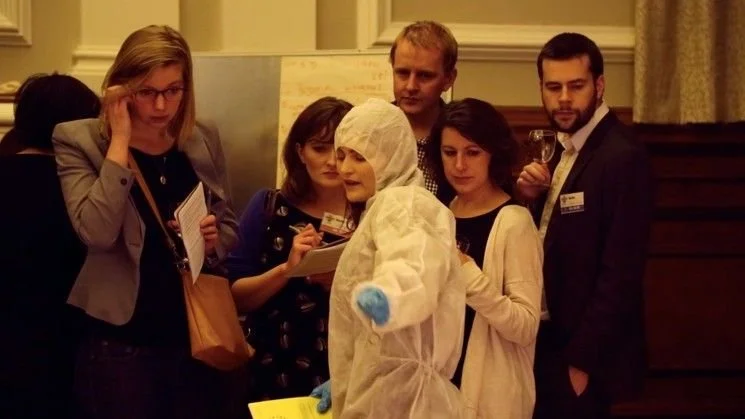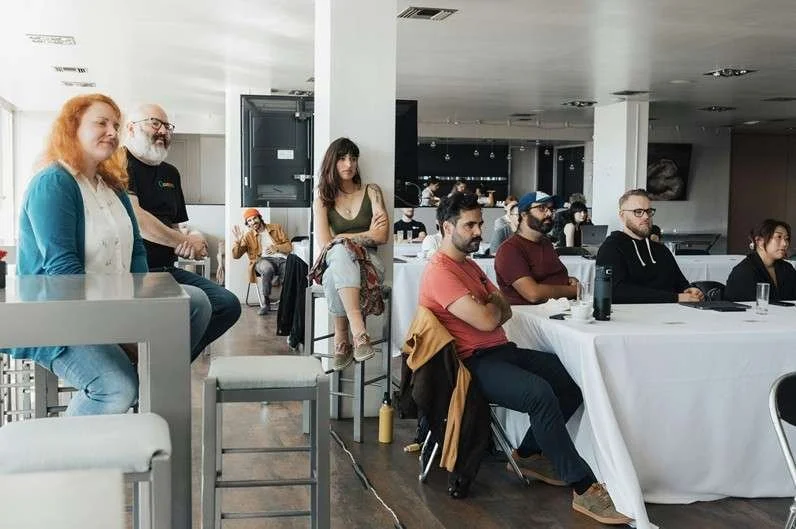How Immersive Experiences London Are Transforming Workplace Culture?
When Everything Seems Fine
Remember how excited you were on your first day at work? Everything looked great. Everyone seemed professional, friendly, and welcoming. But then, just before a meeting starts, your manager or a senior colleague walks in and suddenly the room falls silent. Eyes dart. No one dares to disagree or speak up. You try to share an idea, only to be interrupted, glared at, or dismissed with sarcasm.
According to Culture Shift research, one in three UK employees has experienced a toxic work environment. It’s not about simple debates or open disagreements; those can be healthy. The problem is that when people become too afraid to speak honestly, it leads to a culture of “keep the boss happy” at the expense of genuine collaboration and quality outcomes.
The Trap Behind ‘Professionalism’
In many London workplaces, professionalism is often mistaken for “discipline without emotion.” Beneath that, subtle behaviours create emotional distance and psychological insecurity. From over-controlling managers and hypersensitive colleagues to feedback systems that humiliate rather than help, toxicity often grows unnoticed until motivation fades.
This culture doesn’t appear overnight. It’s shaped by everyday habits that often go unnoticed.
Common Toxic Behaviours You Might Recognise
When unfairness and overwhelm pile up, burnout takes over
Micromanagement and excessive control
Around 33% of UK employees have experienced toxic management behaviours such as micromanagement, intimidation, or gaslighting, according to SME. These actions erode confidence, discourage initiative, and make people afraid to speak up because every move feels scrutinised.
Silent treatment and passive-aggressive communication
According to Employer News UK, this behaviour contributes to 39% of employee resignations. Many employees stay silent to avoid conflict, believing it’s the safest route, yet it only deepens frustration and prevents real solutions.
Unclear or demeaning feedback
Research from The HR Director found that 56% of UK employees have felt belittled in front of their colleagues. Vague or harsh feedback, often disguised as “firm management”, can destroy psychological safety, reduce motivation, and heighten stress.
Unfair recognition
Favouritism is more common than people think. Around 45% of employees in the UK feel that certain individuals receive special treatment or that managers claim credit for their team’s ideas, according to The HR Director. Even small injustices like this breed resentment, unhealthy competition, and declining team loyalty.
Toxic productivity and seniority culture
Workers in the UK often face long hours and relentless pressure; a sign of toxic productivity, where busyness is valued over balance, as reported by Reuters. This culture causes burnout, reduces output quality, and weakens well-being.
The Consequence: Resignation
Culture Shift found that over 50% of employees exposed to toxic workplaces eventually choose to leave within a year, if they can even last that long. Imagine waking up every day questioning whether it’s safe to speak up. Eventually, even passionate employees lose focus, confidence, and energy. Burnout becomes inevitable.
No wonder so many young professionals now prioritise workplaces that are more humane and emotionally intelligent.
The Solution: Building Empathy Through Immersive Experiences
This is why more London companies are turning to immersive experiences, training programmes that go beyond leadership theory or annual compliance workshops. Instead, they place participants directly into realistic, emotionally charged scenarios with no scripted answers.
For example:
“The Death of Jane Doe” places participants in an ethical dilemma under emotional pressure, helping them recognise how bias and stress shape professional behaviour.
“Mirror Room Experience” uses reflective spaces where participants watch their own communication habits from others’ perspectives.
“Team Pressure Lab” simulates crisis-level deadlines or internal conflicts, allowing participants to practise managing stress, empathy, and teamwork in real time.
Through immersive experiences like this, employees don’t just hear what’s wrong; they feel it, reflect on it, and begin to change from within.
Behavioural Skills Training by Sidestream
At Sidestream, we design behavioural programmes that tackle real workplace challenges, not just theory. No generic templates, no textbooks, every session is built around your team’s dynamics to create practical, lasting impact.
Teamwork in action: participants collaborating during behaviour training.
Some of our most impactful sessions include:
Streamer Things: A Dungeons & Dragons-style simulation where teams make high-stakes decisions under pressure. Participants build resilience, collaboration, and strategic thinking, skills that help reduce toxic behaviours in real workplaces.
Psychological Capital Workshop: Builds resilience, optimism, and self-belief. Participants learn practical tools to manage stress, overcome negative thinking, and respond constructively to challenging colleagues.
Creative Collaboration: Focuses on teamwork across departments. Participants learn to communicate openly, break down silos, and co-create solutions, fostering a culture of trust and support.
The outcomes are tangible:
More open and supportive communication
Feedback received without fear
Healthier ways to handle stress and pressure
Stronger, more cohesive teams
A Healthy Culture Starts with How We Treat Each Other
Cultural transformation doesn’t happen through motivational talks or posters on the wall. It grows through small, consistent actions. How we address colleagues, accept feedback, and create space for everyone’s voice.
Through Sidestream’s Behavioural Skills Training, we help organisations build empathy-driven, resilient cultures. Our immersive approach ensures participants not only know what to do, but truly understand why it matters.
The result? Not just stronger teams, but workplaces that feel more human, supportive, and productive.
Ready to change how your team interacts and collaborates?
Book a free call today to design a Behavioural Skills Training and Immersive Experiences tailored to your company’s unique challenges. Let’s create change that’s genuinely felt, not just seen.



